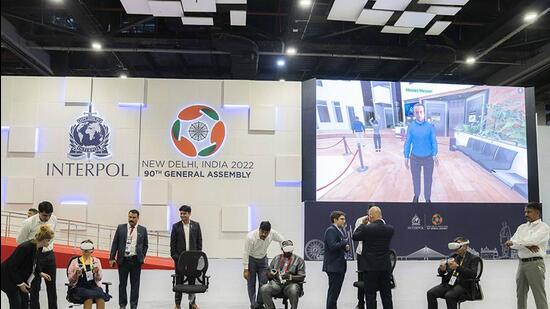During its 90th General Assembly in Delhi on Thursday, the International Criminal Police Organization (Interpol) unveiled the first-ever metaverse created for law enforcement agencies throughout the globe.
This “fully operational” Interpol Metaverse reportedly allows registered users to virtually visit the Lyon, France headquarters of Interpol, engage with other officials via their own avatars, and even take immersive training courses in forensic investigation and different policing abilities, all without being limited by geography or physical location.
W.E.F., working with Interpol, Meta, Microsoft, and others to define and control the metaverse, has identified social engineering schemes, violent extremism, and disinformation as potential threats.
According to Interpol, the range of crimes that might be committed in the metaverse as its user base expands and its technology advances include money laundering, sexual assault and harassment, data theft, financial fraud, counterfeiting, child abuse, ransomware, and phishing.
Some of these dangers may pose severe difficulties for law enforcement to address since not all illegal actions in the real world are also regarded as illegal in the virtual world.
***






